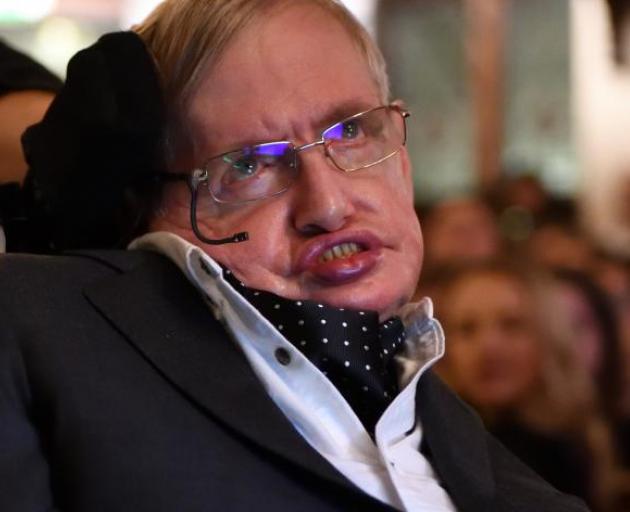
What made Stephen Hawking special was he was both. Even the formidable physical challenges he faced did not detract from his ability to communicate with and inspire not only scientists and students, but also the public.
Prof Hawking, a theoretical physicist, was one of the leading thinkers of the last 100 years. His theories and conclusions on cosmology, particularly black holes, are huge contributions to human knowledge.
When he died in Cambridge last week, aged 76, he left behind a legacy in the form of millions of armchair scientists who might otherwise not have had an interest in the biggest questions in the universe.
What makes the Hawking story even more interesting is that he was a great communicator who had trouble communicating.
His degenerative motor neurone disease - amyotrophic lateral sclerosis - made it increasingly difficulty for him to speak. Then, in 1985, he had to have a life-saving tracheotomy due to pneumonia; as a result, he had to adopt the reedy-sounding computerised voice-synthesizer which many people identify him with.
Despite the ever-advancing disability, which would have dispirited and depressed most people, Prof Hawking revelled in life.
He went to the Antarctic, and experienced zero-gravity in an aircraft. He travelled the world, with his medical entourage, lecturing on the intricacies of the cosmos.
As a populariser of science, he was second-to-none. Not many in the Western world will have failed to hear about him. Millions of people are proud to have a copy of his bestselling A Brief History of Time on their book shelves, even if far fewer have actually read it.
Prof Hawking was also greatly concerned about the plight of humanity, the threats posed by climate change, the difficulties of living sustainably on a planet with a ballooning global population and increasing pressures on land, crops and water.
Just a couple of weeks ago, he was reportedly putting the finishing touches to a treatise which some believe may have earned him the Nobel Prize that had eluded him and which others said he richly deserved.
The paper, ''A Smooth Exit from Eternal Inflation'', is now under review by an unnamed leading scientific journal.
It lays out the mathematics needed for mankind to detect parallel universes by finding evidence of multiple ''Big Bangs'' other than our own.
For its size, New Zealand has had more than its fair share of ground-breaking scientists, including the likes of Ernest Rutherford, Beatrice Tinsley, Maurice Wilkins and Alan MacDiarmid.
First-rate science communicators are few and far between. But again New Zealand has been fortunate in recent years to have the talents of - to name a few - the late physicist Sir Paul Callaghan, microbiologist Siouxsie Wiles, geologist Mark Quigley and meteorologist Daniel Corbett, each able to explain their science, its importance and relevance, to us all.
Prof Hawking has brought us closer to our universe. Although not a religious man, he may have enjoyed the poignancy of former United States president Barack Obama's farewell tweet: ''Have fun out there among the stars.''












